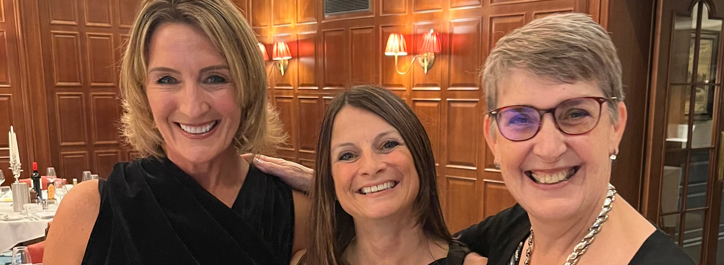Recruitment in the time of Covid-19
It’s one of those cliched but true business moments - the first meeting, the firm handshake, the look in the eye. An instinctive feeling that a candidate could be the right one can be confirmed as every answer ticks the right box, but it’s the way the body language rings with sincerity that ensures the mood transitions from questioning to trusting. It’s the dream interview that leads to adding the right person to the team.
In the new socially distanced world of work, that simply isn’t going to happen - not with all the face-to-face contact, anyway. While we’re all adapting to video conferencing within our teams and with external contacts, bringing someone into the business can feel somehow very different. Yet when handled correctly it is possible to manage an interview process without meeting the candidates, even without those non-verbal cues and that hands-on sense of getting to know them.
“Overall demand for recruitment throughout the pandemic has reduced,” says Lynn Walters, "but for some companies, recruitment is a top priority and they have adopted remote interviewing rapidly and successfully.”
The Arthur Rank Hospice in Cambridge had ambitious plans for expanding its hospice-at-home programme before the pandemic struck – and they haven’t been derailed. “During lockdown, we’ve offered 15 to 20 positions to people,” explains chief executive Sharon Allen. “We still have to do all the background checks in the usual way, but we were able to interview digitally and we’ve been delighted with the calibre of candidates we’ve been seeing.”
Faster recruitment
It turns out that one benefit of the shift to remote working is it’s far easier to arrange interviews. With people working flexibly from home, Zoom or Teams meetings can be slotted discreetly into a diary – there's no need for candidates to apply for a day off to travel to an interview in a week or two’s time. If necessary, they can make up the time later in their current role.
This rapid access to the candidates makes the whole recruitment process much faster and more efficient. “If we’d been doing things the old way, we’d probably still be trying to arrange half the interviews,” concludes Sharon Allen.
That’s not the only benefit of doing interviews this way. “With so many meetings now taking place on video conferencing technology, the ability to communicate effectively on these platforms is becoming an essential skill for many professionals,” Lynn points out. “Conducting part of the recruitment process via a video interview is not only convenient but also a good predictor of how a candidate will perform in their role.”
However, even if it is becoming more virtual, it’s still vitally important that potential employees get a proper feel for a business as part of the recruitment process. To help them prepare for a digital interview, Pure recommends providing a recruitment video. “It’s a great way to provide candidates with a glimpse inside the company culture,” explains Lynn. “It helps get them excited about coming to work with you and is an opportunity to see some of the key people.”
In some circumstances, it may be possible to do more than just see those key figures. They might be able to meet them. The convenience of video conferencing makes it possible to involve more members of a team in the interview process - either at an initial or second interview. International nutritional-supplement giant Lifeplus has recruited three people for its St Neots headquarters team during the lockdown, ensuring that candidates got to meet line managers and others from their future teams as part of the selection process.
Induction by video
Selection is just the start of a new employee’s journey with a business and the next stage is crucial for getting them up to speed rapidly, especially when they won’t be starting in a traditional office environment. “New recruits have always received a ‘welcome’ goody bag on day one. These are now sent to them, along with all the kit they need to work from home,” says Toni Jones, recruitment manager at Lifesplus, “And we make sure everyone receives a pre-start call before their first day.”
Lifeplus has been delivering its seven-day induction course by Zoom – including to two new starters based in Europe, who have had to delay relocating to the UK but without delaying starting the new job. “We start each day with a coffee and a chat so we can get to know each other, rather than diving straight into the training,” explains induction trainer Lee Murray.
Lee records the induction sessions, so new starters can watch them again in case they missed anything on the screen. A number of people get involved, so the new starters can meet a variety of people from across the business. “They also speak to their own team leaders each day and we assign them a buddy to work with," Lee says. “The key is that new people feel connected to Lifeplus from day one.”
Here to stay?
“We’re doing inductions using Zoom and, because everyone’s adapting so quickly to it, it doesn’t feel strange any more,” says Sharon Allen of the Arthur Rank Hospice – though she adds, “For some things, like inductions, we may move back to face-to-face working when it’s possible.”
Indeed, as efficient as remote interviewing can be, it seems that not every role can be filled by this process. “Companies have been reluctant to make senior management or board appointments without meeting the candidate in person,” admits Lynn Walters of Pure. “However, they have successfully progressed the recruitment for these roles to an advanced stage.”
This ability to develop the selection process rapidly – and to complete the hire for some roles far faster than with old face-to-face methods – means the video interview is likely to become an established part of the recruitment landscape, even after the pandemic has passed. “Going forwards, we’re likely to advise our clients to incorporate video interviews into the process,” Lynn confirms.
“However you recruit, remember that the candidate experience is paramount to a successful hire and a positive experience is good for your companies brand and reputation,” she concludes.
Action points
Meet on common ground
If possible, use a video conference package that candidate and interviewers are all used to using, to avoid any introducing any unnecessary IT angst into the process. As with all video meetings, make sure you are somewhere quiet, where you won’t be interrupted.
Do the basics right
A remote interview is still an interview. Have an agenda or list of questions to work through and follow it. Really listen to the answers and take notes as appropriate. Establish a rapport with the candidate. Have their details to hand and refer to them if necessary – and keep their contact details, in case there’s a problem with the video call and you need to call to reschedule.
Be patient
Everyone’s nervous in interviews and even if someone is comfortable with video conferencing in another work context, it may heighten their anxiety about the interview. Be kind and patient with candidates to get the best from them.
Use the team?
It may be possible to bring additional people in for part or all of an interview, to allow candidates to meet other stakeholders or team members. If you are tempted to involve more people, plan what you would like each interviewer to assess, so you can gather feedback that will ensure a well-informed, timely decision at the end of the interview process.
Make the induction count
Base your induction on your pre-pandemic process and if you already have an induction pack, it’s a great starting point. Consider arranging video calls with people in different areas of the business or with different team members for new starters. Make sure that, as well as access to the company intranet, new recruits understand how to navigate it and get the most from it.
If you would like support with your recruitment, our consultants would be happy to help and pleased to talk to you. Contact our consultants today.



